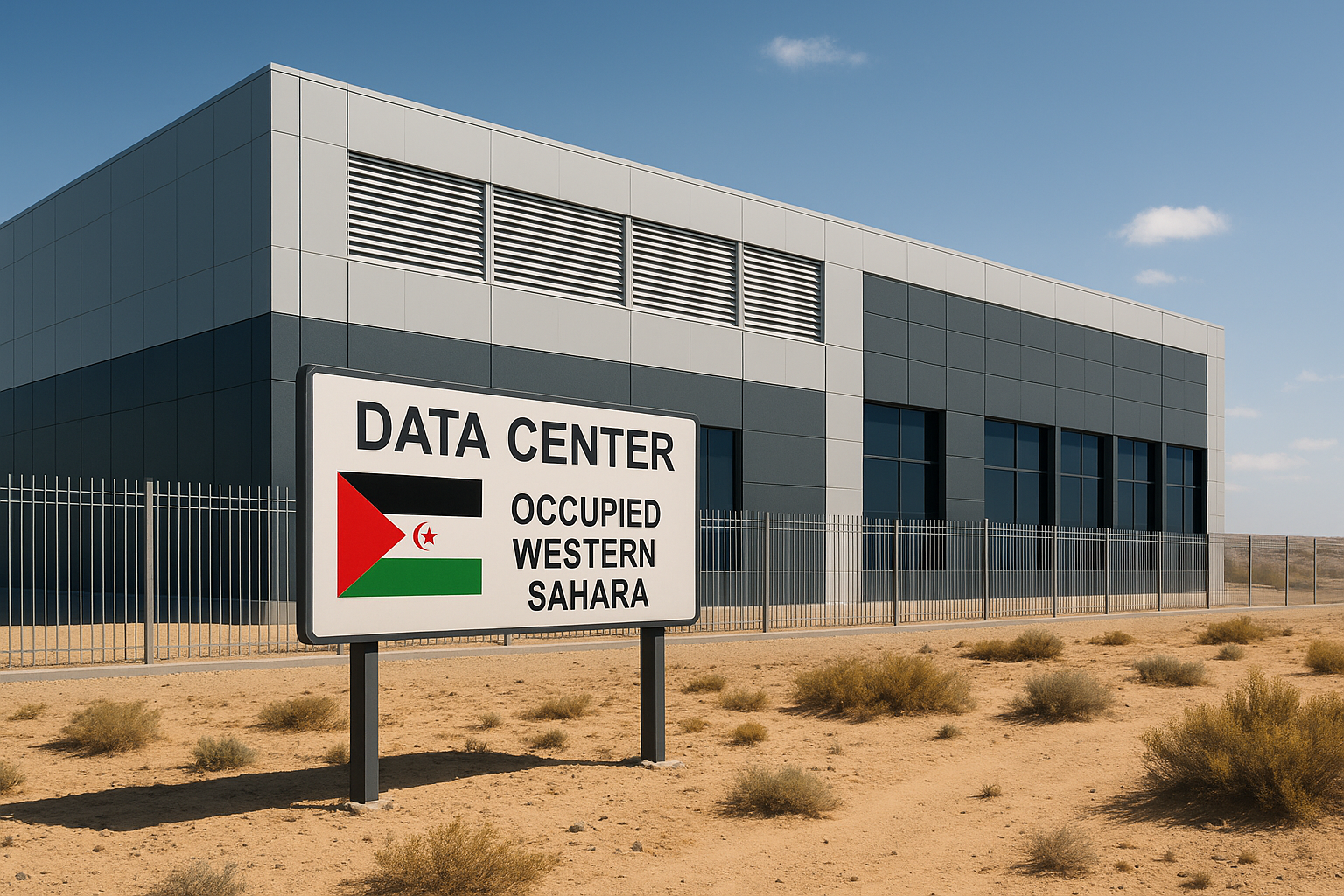
A 500 MW hyperscale data center for Artificial Intelligence is being envisaged in the occupied territory.
The above picture is, for once, AI generated.
In a move that deepens its hold over Western Sahara, Morocco has announced plans to build a 500-megawatt hyperscale data center in Dakhla, a coastal city in the non-self-governing territory it has occupied since 1975. The facility, reportedly to be powered entirely by renewable energy, would rank among the largest data centers on the African continent.
The announcement was widely reported by Moroccan and international media following the signing of a partnership between Morocco’s Ministry of Energy Transition and the Ministry of Digital Transition and Administrative Reform. The deal was concluded in early July on the sidelines of the country's National Conference on Artificial Intelligence. Moroccan Minister for Digital Reform, Amal El Fallah Seghrouchni, stated that projects like this serve to “assert [the kingdom’s] digital sovereignty.”
The project aligns with Morocco’s broader strategy to attract international tech firms through incentives like tax cuts and exemptions under the National Charter of Investment, and to position itself as a digital hub connecting Africa and Europe. The site in Dakhla is strategically positioned to capitalize on abundant solar and wind resources, and is expected to serve as a hub for data storage, AI development, and high-performance computing.
But behind the sleek façade of green energy and technological advancement lies a troubling reality: the data center is being planned on occupied land, without the consent of the Saharawi people, the rightful inhabitants of Western Sahara, whose right to self-determination is enshrined in international law.
"While Morocco speaks of digital sovereignty, it continues to violate the very principle of sovereignty when it comes to the Saharawi people," says Sara Eyckmans from Western Sahara Resource Watch (WSRW), that reported on the matter. "Establishing a data center of this scale in occupied territory, without consent, amounts to the usurpation of Saharawi land, masked as technological advancement."
The United Nations classifies Western Sahara a non-self-governing territory. Morocco’s claim to sovereignty over the territory has been rejected by international courts, and is not recognised by the United Nations or by the vast majority of the international community.
The scale of the Dakhla project adds to the concerns. Hyperscale data centers require vast tracts of land and substantial infrastructure - roads, power lines, fiber optics - which could irreversibly alter the landscape and reinforce Morocco’s occupation.
Three weeks ago, Naver Cloud announced a partnership with Nvidia, Nexus Core Systems, and investment firm Lloyds Capital to build a similar “AI factory” in Morocco. The exact location has not been disclosed, leaving it unclear to Western Sahara Resource Watch whether this is a separate project or the same Dakhla initiative. The consortium has signed a strategic renewable energy agreement with energy company TAQA for the provision of power infrastructure. TAQA was recently accorded a contract by the Moroccan government for the construction of a 1,400 km high-voltage “Electric Highway” and 1,200 megawatts of new wind power capacity, all to be developed within occupied Western Sahara. It reportedly also has plans to develop green hydrogen in the territory.
Given the ambiguity, WSRW urges all investors and companies involved in data infrastructure in Morocco to exercise robust due diligence and and avoid complicity in projects located in occupied territory. International legal precedents, such as the ten subsequent rulings of the Court of Justice of the EU, have established that Western Sahara is a distinct and separate territory from Morocco, and that economic activities there require the express consent of the Saharawi people.
“The race for AI and data capacity cannot come at the expense of international law and human rights,” Eyckmans adds. “No amount of solar panels or green branding can hide the reality that this project is being developed on land under military occupation. As the world shifts towards an increasingly digital future, WSRW calls on governments, investors, and companies to ensure that innovation does not become a vehicle for deepening injustice in Western Sahara.”
Order our Western Sahara poster!
“Try to Visit Western Sahara”…
The Security Council fails Western Sahara and international law
On 31 October 2025, a new resolution was adopted in the UN Security Council calling on the Saharawis to negotiate a solution that would entail their incorporation into the occupying power, Morocco.
Saharawis Demonstrate Against Trump Proposal
The United States has proposed in a meeting of the UN Security Council on Thursday that the occupied Western Sahara be incorporated into Morocco.
Skretting Turkey misled about sustainability
Dutch-Norwegian fish feed giant admits using conflict fishmeal from occupied Western Sahara. Last month, it removed a fake sustainability claim from its website.



